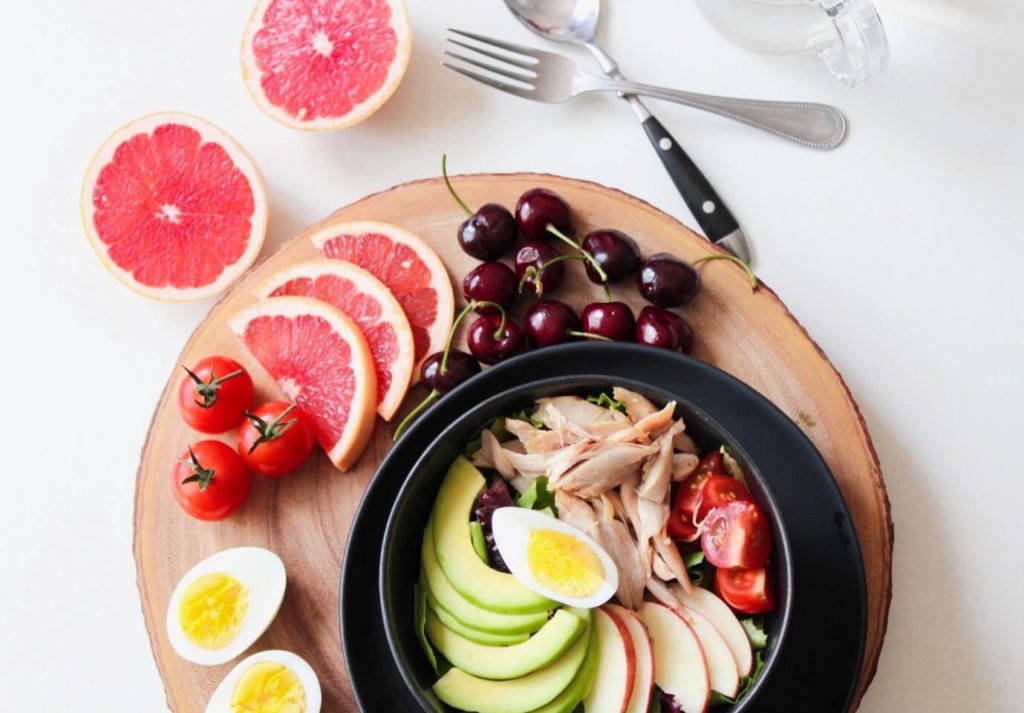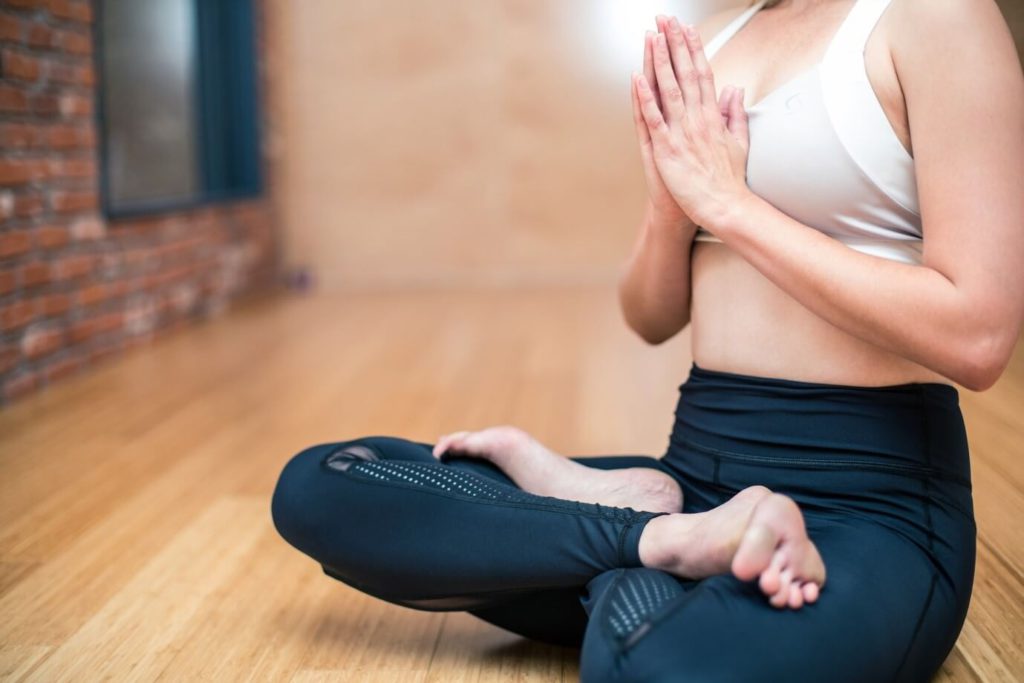Feeling stressed, tired or irritable?
Then you need to slow down and make time to practice self-love. Self love is the perfect antidote to the busyness and pressures of life, but it often ends up being last on our to do list.
The problem is, if we don’t look after ourselves, we simply won’t have the energy to look after anyone else.
We’ve come up with five simple self-love remedies that will restore your wellbeing and boost your quality of life.
1. Get a better night’s sleep
Sleeping well is “as crucial to our health and wellbeing as eating a healthy diet or exercising regularly”, according to the Sleep Council. Sleep well and your concentration will improve, you’ll feel happier and you’ll even benefit from a stronger immune system.

If you’re getting between seven and nine hours of sleep every night you’re doing well. However, when it comes to sleeping, quality is as important as quantity. This is because the deep stages (slow wave or delta sleep) are responsible for repairing the body, generating tissue and building bones and muscles.
So how can you ensure that you get a good night’s sleep? Here are some tried and tested suggestions:
No blue screens before bedtime
If you often use a blue light emitting device such as a mobile phone in the evening, you might have experienced what the Sleep Council refers to as ‘electronic insomnia’.
This happens because exposure to the light confuses your body clock, significantly reducing production of the sleep hormone melatonin. So if you’re desperate for some good quality shut eye, avoid using your phone, laptop and tablet for at least an hour before you try to sleep.
Turn off the television
The Sleep Council’s research shows that 39% of people who watch television in bed sleep very poorly most nights. If that includes you, try removing the television from your bedroom and don’t be tempted to replace it with your phone or tablet.
Experiment with essential oils
Essential oils have been used to promote relaxation for centuries. The natural sedative properties of scents like lavender and vanilla make them perfect antidote to insomnia, so why not try taking a warm lavender oil infused bath before bedtime?
You can also buy lavender room sprays and body oils that sooth your skin and your mind.
Learn how to relax
A good night’s sleep requires relaxation, so if you’re mind’s still buzzing when you retire to bed you’ll probably struggle to drift off.
Mindfulness meditation is a very effective way to quieten your mind, as it involves being fully aware of the present moment. Fancy trying it? Head over to the Netdoctor website, which features a bedtime mindfulness routine courtesy of psychologist Dr Audrey Tang.
Create a comfortable space
Sometimes sleeplessness is caused by basic factors like a bedroom that’s too light, too hot or too noisy. Thankfully, there are a few simple solutions to problems like these.
If your room isn’t dark enough we recommend investing in some black out blinds or an eye mask. If it’s not quiet enough, earplugs might help. Too hot? Invest in a ceiling fan or a lighter duvet.
Cut back on caffeine and alcohol
Caffeine has a half life of five hours, which means that five hours after you drink a cup of tea or coffee, half of the caffeine is still in your system.
So if you regularly enjoy a late night cuppa and you’re struggling to sleep, you could try replacing it with a warm milky drink or some herbal tea.
Drinking alcohol late at night can also impair the quality of your sleep, as well as causing you wake up feeling dehydrated. You’re more likely to need the toilet in the middle of the night too.
2. Eat nourishing food
When it comes to wellbeing eating properly is essential, so we recommend making time for three nutritious meals a day.
To keep your energy levels up try and eat a lunch that includes some beans, nuts, eggs or protein packed lean meat, plus a serving of vegetables or salad. Another great choice is oily fish, as supplementing your diet with omega-3 fish oil boosts concentration.
Vitamins and minerals like zinc, selenium and riboflavin also play a key role in keeping you healthy, as do antioxidants, which repair your skin and protect it from pollutants.

Vegetables and fruit are a great source of these, so the easiest way to make sure that your body gets everything it needs is to eat your five a day and include plenty of variety.
Ever tried a drink called Kombucha? If you have it’s probably because fermented food and drink has recently become popular due to its health benefits.
According to nutritionists, drinks like Kombucha ( made using a tree fungus called SCOBY) have probiotic qualities, which means that they help to maintain the balance of friendly and unfriendly bacteria in your gut.
Sauerkraut is considered to be equally beneficial, as vegetables soaked in salt water encourage the growth of friendly bacteria.
Using spices is another simple way to boost the health benefits of your daily diet. As well as enhancing the colour and flavour of your food, many spices possess powerful antioxidant properties. You might want to stock up on:
Turmeric
Turmeric is packed with cancer combating antioxidants. It also has anti-inflammatory properties and protects your body from free radicals.
Ginger
Whether it’s chopped, grated, sprinkled or ground, ginger has impressive inflammatory properties making it ideal for reducing pain caused by arthritis and migraines. It also aids digestion and relieves nausea.
Cinnamon
Because it slows the breakdown of carbs in your digestive tract and improves insulin sensitivity, this aromatic spice could lower and stabilise your blood sugar levels. It can also relieve inflammation. The recommended intake is 0.5-2 teaspoons daily and cinnamon is delicious mixed into coffee or sprinkled over porridge.
Cayenne Pepper
This fiery spice acts as an antioxidant and an anti-inflammatory. It can also boost your metabolism, speeding up the rate at which you burn calories. Try adding it to stews, soups, sauces and curries.
Be kind to your skin
Once you’re sleeping and eating well you should start to notice a difference in your skin. In the meantime, there are plenty of other ways to keep your skin looking and feeling its best.

Avoid irritating ingredients
Unfortunately many synthetic skin products use irritating or drying ingredients like sodium lauryl sulphate (SLS) and alcohol. You might have spotted SLS in the list of ingredients that make up your cleanser, as it’s an effective foaming agent.
However, we recommend avoiding it, as it strips skin of its natural oils. We also suggest avoiding alcohol in skincare products, as this evaporates when it touches your skin, causing it to lose moisture.
There are plenty of products that are much kinder to your skin. For example, look out for cleansers containing natural skin balancing plant extracts. You can also buy plant based moisturisers, face masks and anti-inflammatory night creams that soothe and repair your skin.
Drink lots of water
Staying hydrated is essential if you want to keep your skin looking healthy. You should be drinking 6-8 glasses a day, unless it’s hot, in which case you’ll need more. If you’re not keen on plain water, the NHS Live Well website suggests adding a slice of lemon, some sugar free squash or a little fruit juice for flavour.
What about fruit juice and smoothies? Well, they do count as part of your daily intake, but try to limit your intake to 150ml per day, due to their sugar content. It’s also worth reducing your consumption of coffee and tea, as they have a diuretic effect.
Use natural blemish busters
We all get blemishes from time to time, but some anti-spot products will simply strip the natural oils from your skin, encouraging your pores to produce more oil. Thankfully, many natural products possess excellent blemish busting properties. These include:
Rosehip Oil-Helps scars to heal and give skin a natural glow.
Jojoba oil-Has antibacterial properties and won’t clog pores
Activated charcoal- Soaks up toxins
Calendula oil-A flower petal extract that’s anti-inflammatory and antibacterial
Tea Tree-Possesses antibacterial properties
Witch hazel-A natural astringent that removes oil without drying skin
Black willow bark-a rich source of salicylic acid, which helps to smooth and soften skin, as well as balancing oil production.
Release your inner yogi

If you’re familiar with Downward Facing Dog or the Forward Fold you’ve probably tried yoga before. The poses, meditations and breathing techniques of this ancient form of exercise will improve your core strength, flexibility, balance and posture. It’s also excellent for relaxation, making it the perfect self-love activity.
Physical health benefits
Yoga breathing techniques are known as pranayma and they focus on slowing down and deepening your breathing.
This reduces physical tension, making it easier to remain calm. Studies have even shown that taking part in yoga can lower your heart rate, which helps your body to respond healthily to stressful days. If you practice yoga regularly you’ll also benefit from stronger limbs, firmer abs and improved general fitness.
There are plenty of yoga videos online, but if you’re new to yoga the NHS recommends finding a class to make sure that you learn the poses and breathing techniques properly. To locate a class near you, check out the four main yoga associations:
It’s also worth paying a visit to the NHS’s Fitness Studio , which features its own yoga videos.
Mental health benefits
The plugged in nature of modern living often results in information overload and cluttered minds.
Yoga slows everything down and clears the clutter. As you start to relax, your cortisol levels will drop, restoring calm and reducing any physical symptoms of stress. If you practise it regularly, yoga could even boost your serotonin levels.
If you’ve never tried yogic meditation, you should! It involves sitting in silence, breathing deeply and noticing every sound, sensation and thought. Every time your mind wanders you’ll learn to refocus your attention, which will result in better concentration and clearer thinking.
Mediation will also enable you to pull back and simply observe any negative thoughts and feelings. They’ll travel through your mind but they won’t get stuck.
Enjoy some Ecotherapy
It’s well known that taking part in exercise is an excellent way to combat stress and improve your mood.
It releases endorphins, increases your energy and keeps you mentally sharp. In fact, research has shown that just an hour of exercise a day can combat the effects of sitting still for long periods of time.
Exercising in the countryside has been proven to provide even greater benefits, particularly when it comes to mental wellbeing.
When mental health charity Mind commissioned the University of Essex to carry out a research project involving green exercise or “ecotherapy”, they found that getting active in the countryside enhanced the participants’ mood and self-esteem. It also reduced any pre-existing anger, tension and depression.
The people who participated in Mind’s research took part in a variety of ecotherapy activities including conservation work, cycling, gardening and running. But some of them simply put on their trainers and went for a walk.

Walking is such a simple way to exercise and if you live in England or Wales, you have free access to 130, 000 miles of “public right of way”.
So whether you fancy rambling across remote Moorland, strolling through a secluded nature reserve or cycling along quiet country lanes, why not boost your psychological wellbeing and fitness by reconnecting with the natural world?
If we’ve inspired you to dust off your hiking boots and tackle some more challenging routes, check out your local bookshop, library or tourist information centre, where you’ll find a selection of walking maps.
You could even visit the Ramblers website to find out whether any walks have been organised in your areas. Just be sure to Invest in a decent waterproof jacket before you set off!
Incorporating more self-love into your daily life will help you to feel revitalised, refreshed and ready to tackle whatever life holds in store. So why not put yourself at the top of your to do list this week? We’d love to hear how you get on!